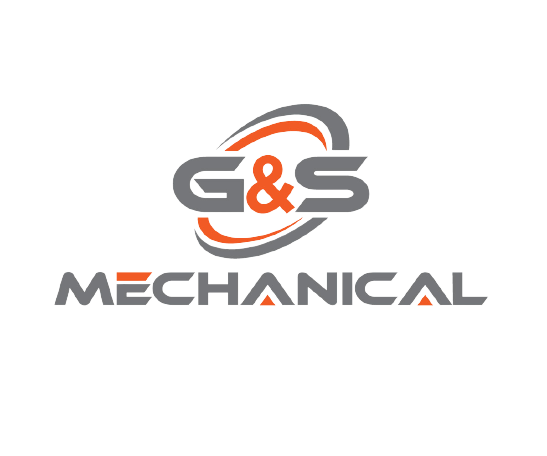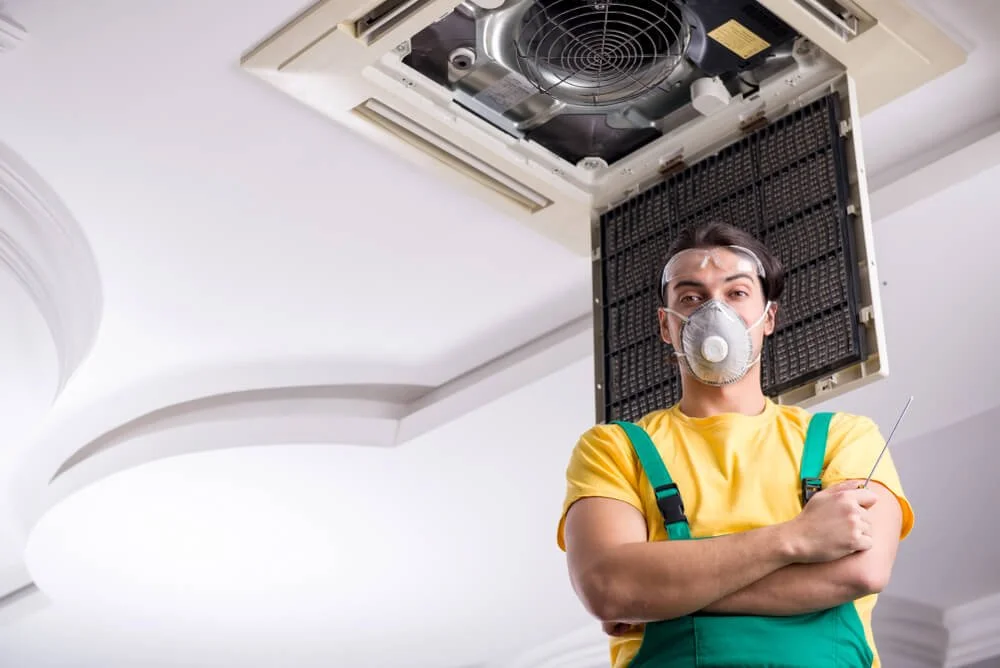10 DIY HVAC Maintenance Tips for Homeowners in 2024
An HVAC system is essential to the comfort of your home, so you must take good care of it. However, many homeowners simply don't have the time or resources to keep up with the regular AC maintenance. And so, over time, these HVAC components will wear down and need to be replaced or repaired.
However, you can extend the life of your HVAC units by following some basic yet most important HVAC preventative maintenance tips discussed in this blog post. We'll go over ten easy DIY HVAC maintenance tips for homeowners to keep their HVAC system running smoothly for years to come.
1. Change or Clean Your Air Filters Regularly
One of the most important things you can do to keep your HVAC system healthy is to change or clean your air filters regularly. They are responsible for removing large particles and allergens from the air before they reach your indoor air quality sensors.
If the filters aren't clean or are faulty, the system will have a more challenging time removing these contaminants and your home will suffer in the long run. So, cleaning the filters will not only help reduce the amount of dust and allergens in your home, but it will also help to improve your system's efficiency.
To change your filter, simply remove them from the HVAC unit and replace them with new ones. To clean them, use a hand vacuum to lift allergens and then wipe any residual using a microfiber cloth. For a deep clean, wash it thoroughly with warm water and vinegar. Be sure to allow them to air dry before reinstalling them into the unit.
If you're ever unsure how to change or clean your air filters, don't hesitate to hire professional help and seek your HVAC technician to get it done with peace of mind.
2. Keep Your Vents And Registers Clean
Keeping your vents and registers clean is one of the simplest ways to keep your system healthy.
If the vents and registers are covered in dust, dirt, or other debris, the air entering and exiting the system will be dirty and not as efficient at cooling or heating your home. Not only will this increase your energy costs, but it will also reduce the lifespan of your air conditioner.
The first step in keeping your vents and registers clean is to identify the area where the dirt and dust accumulate the most. This could be anywhere from the top of the registers to the bottom of the vents. Once you know where the dirt and dust are congregating, it's time to take action.
To clean the vents or registers, you'll need to use a brush to clear the dust and dirt from the openings. Be sure to brush from top to bottom and from the left to the right to ensure that all the dirt and dust are removed. If there is any debris left on the vent or register, you can use a vacuum cleaner to clean it up.
Although you can do an excellent job independently, you may need an HVAC professional to clean your ducts thoroughly.
Also Read: Everything You Need To Know About Residential HVAC Repair And Maintenance
3. Clean Debris And Dust From Your Outdoor Units
The outdoor unit of the HVAC system is more likely to catch debris and dust that could hamper your HVAC performance. So, it's important to keep it clean and in good shape to keep your air conditioner running for years and reduce the amount of energy it uses.
To clean your outdoor units, you may need to remove the fan grill to clean every corner of your outdoor unit. Before you do this, make sure to power off the unit first for your safety. Then, you can use a vacuum cleaner with a hose attachment to clean the areas that can't be reached using the bucket and hose. Finally, clean the area around the unit to help it perform efficiently.
If you notice that the airflow isn't as good as it used to be, take a look at your outdoor units and make sure it's level to the ground. If you can't figure it out, it's best to get the outdoor unit inspected by an HVAC contractor.
4. Remove Blockage from Ducts
If you're experiencing problems with your heating and cooling system, there is a good chance that the ducts connecting your HVAC unit to the outside air are blocked.
Blocked ducts can cause various problems, the most common of which is poor indoor air quality. Indoor air quality refers to the air quality inside a home, which can be significantly worse than the air quality outside the home. This is because the chemicals, pollen, and other particles that are released into the air from your HVAC unit are drawn into your home through blocked ducts.
So, it's important to inspect your air conditioning unit and ducts regularly and clear any clogs as quickly as possible. If cleaning doesn't help fix the problem, you may need to replace the ducts. However, if you notice any signs of blockage, such as decreased airflow, it's important to take action as soon as possible to prevent any serious problems.
5. Check Your Heating System for Leaks
One of the most common problems with HVAC systems is leaks. If you notice strange smells or poor air quality, your HVAC system is likely leaking.
To check for leaks, first, determine the source of the leak. Is the leak coming from the ducts? The condenser unit? The fan? Once you know the source of the leak, start checking it for signs of water damage. If you see any signs of water damage, immediately call a professional to fix the leak.
If you don't see any water damage, then the next step is to check the system for other signs of leaks. Is your AC making a buzzing noise? Is the temperature fluctuating? Are there any spots in the house where the temperature is cooler or warmer than usual? If you find any signs of leaks, call a professional to fix them.
6. Clean Evaporator Coil And Drain Regularly
When your air conditioner is not in use, it is important to clean the evaporator coil and drain it regularly to ensure proper cooling. The evaporator coil is the part of the AC unit that helps cool the air and becomes clogged over time with mineral deposits. This can cause the AC unit to not work as efficiently, leading to higher energy bills.
The evaporator coil and drain can be cleaned using a vacuum cleaner with the appropriate attachments or a commercial air cleaner. If you choose to clean it using a vacuum cleaner, be sure to use the correct attachments, such as a wand or hose with a crevice tool.
Also Read: 7 Common Residential HVAC Repair Mistakes And How To Avoid Them
7. Use A Programmable Thermostat
When it comes to your home's heating and cooling system, it's important to use a programmable thermostat like a Nest to keep things running smoothly.
A programmable thermostat allows you to set a schedule for when the heat or air conditioning will come on, and it will even notify you when there's a problem with the system. Not only that, you can also set it to cool or heat specific rooms or areas of your home, which can be especially helpful during the summertime when you want to avoid having your entire house cooled or heated at once.
So if you're looking to save energy and make your HVAC system more manageable, consider investing in a programmable thermostat. This way, you can be sure that your home is always comfortable and that you're not wasting energy unnecessarily.
8. Keep Your Outdoor Compressor In Shade During Summer
When the temperatures start to rise, it's important to make sure that the outdoor compressor of your air conditioning system is kept in the shade. Not only will this help to reduce the load on your air conditioning unit, but it will also help to avoid damage to the compressor.
Keeping your outdoor compressor in direct sunlight will heat up and cause the compressor to break down more quickly. Additionally, if the compressor is located in a sunny area, the heat will cause the refrigerant to evaporate more rapidly, which could also cause the compressor to break down more quickly.
So, for long-lasting performance, keeping your outdoor compressor in the shade during the summers is highly recommended. Plus, it just looks nicer when your air conditioning works in harmony with the rest of your backyard oasis!
9. Use Fans Occasionally
HVAC systems are important in keeping a home comfortable and healthy, but like any mechanical system, they can wear down over time. To help keep your HVAC system in good shape, try using fans occasionally to give it a break.
You can use both ceiling fans or portable fans to lower the room temperature. Fans work by moving air around and can help cool a home down quickly in hot weather or circulate air to keep it comfortable in colder weather. Using fans occasionally can help your HVAC system run smoothly and keep your home comfortable year-round.
10. Have Your HVAC System Serviced By A Professional At Least Once A Year
While the DIY maintenance tips mentioned above are pretty easy to perform, having your HVAC system serviced by a professional at least once or twice a year is important. This will ensure that it's in good working order and that any problems can be fixed quickly. Not only will this prevent issues from worsening, but it will also save you money in the long run.
Servicing your HVAC system regularly will also ensure that it's using the most up-to-date parts and that it's performing at its best. By having your system serviced by a professional, you'll also be ensuring that you're getting the best possible service and that you're not risking damage to your home or health by not having it serviced.
Follow The Above DIY HVAC Preventative Maintenance
We hope this post has provided helpful tips for maintaining your HVAC system. With regular maintenance, you can extend the life of your HVAC system and see better performance. Please do not hesitate to contact us if you have any questions or need help with your HVAC cleaning and maintenance. We'd love to help you with any of your air conditioner maintenance needs.


